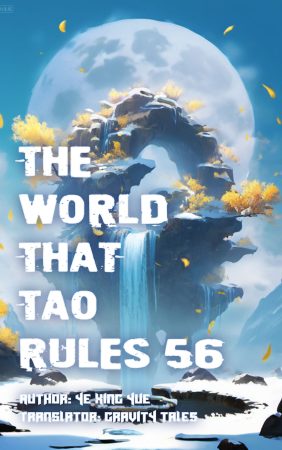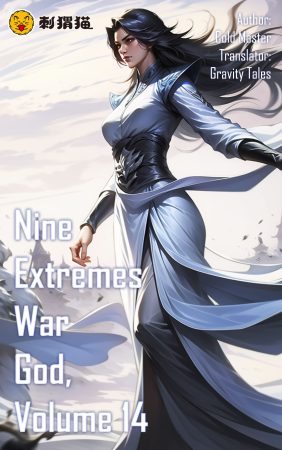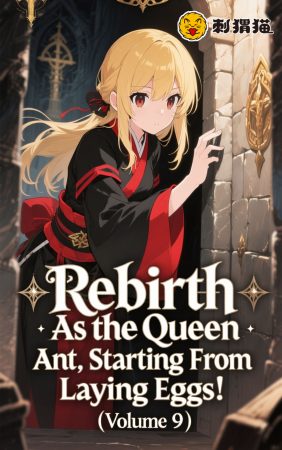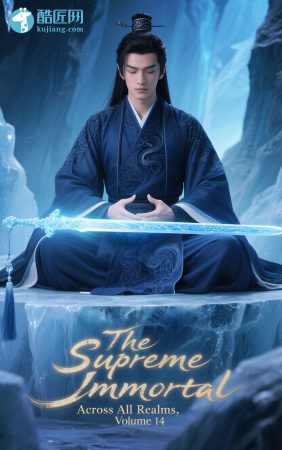Chapter 81
Our Discord Server: https://discord.gg/PazjBDkTmW
You can buy coins here to unlock advanced chapters: https://gravitytales.com/coins-purchase-page/
Chapter 81: Census
When the warrior with bull horns entered the tribe’s entrance, the children surrounded him, shouting Terence’s name. These children had small horns on their heads, as thin as a thumb, tender like new shoots. They would not fight even if their heads touched, their affectionate manner made even the stern warrior feel emotional.
On the day they first met, the children were cautious and watched him from inside the tents.
Over a decade ago, Terence left his homeland, traveled around hiding, was captured by human armies, joined a gladiator uprising, settled in the southeast, and years passed. When he returned after more than a decade, the new children did not know of his existence, only confused by the horns on his head similar to other adults. Some time ago, he led a group back to the secluded homeland, where his kin raised weapons as if facing a great enemy, a standoff and discussion lasted for quite a while, until someone stepped out from the line.
"Is it you, Terence?" The chieftain removed his mask, asking in disbelief.
"It’s me, father," Terence said, embracing his long-unseen father.
His father had aged a lot, his hair and beard covered in a layer of white frost, his eyes not as sharp as before, his once stern expression softened. He nodded with countless emotions towards his son, unable to speak a word.
Later that day, by the campfire, Terence recounted his experiences over the years, his relatives listened in astonishment. His mother covered her mouth in shock, the nieces and nephews were fascinated by the uprising story, urging him to tell more, but the elders who sensed trouble each received a scolding.
"Do you think war is a game?" The chieftain reprimanded, looking at Terence with a mix of relief and fear, and, in the end, in a tone of reproach similar to the past, he said, "Ask him! Isn’t staying here a hundred times better than enduring hardships outside?"
"This place is so boring," murmured the nephew.
"Boredom is better than death!" his mother whispered menacingly, "Do you want to be captured by humans and become a slave?"
"Life here is certainly calmer than outside," Terence said, changing the subject under his parents’ approving gaze, "But I have never regretted leaving, and I will not settle down here forever."
"Are you leaving again?" Terence’s mother asked anxiously.
"Actually, I am just temporarily staying here," Terence said apologetically but firmly, "I might have to take more people with me."
Before the Nightfall Line was established, the Orc Rebel Army had already left Tasmanian and now they are conducting guerrilla warfare in the heartland of the Aryan Empire. This small but highly agile army, prowls in the Empire’s remote areas, striking unexpectedly at arenas, brothels, and prisons where their compatriots are held captive. They snatch and dash, avoiding prolonged battles, rescuing their fellow Orcs and never engaging in direct confrontations with the Empire’s forces.
This Orc group calls themselves the "Spring of Nature."
"Our people are suffering outside, many are not as fortunate as me," Terence said, showing his scarred shoulders, "Father, closing our eyes won’t make the dangers of the outside world disappear, we cannot hide here forever, hoping not to be discovered."
The chieftain raised his voice abruptly and stood up, "Those are the Empire’s troops! I have seen with my own eyes how human conquerors crushed tribes many times larger than ours! My father led the surviving tribe to escape, a narrow escape, only to finally settle in this safe place. Do you want to drag the whole tribe back into danger, facing a colossal giant beast again?!"
"We faced the huge creature and we won! That’s why we can stand here, bringing back our comrades who were once caught by the giant beast!" Terence stood up, ignoring his mother pulling his sleeve, "How long has it been since you heard any news from outside? The dungeon to the southeast has now been firmly established in Tasmanian, occupying one-fifth of the empire’s territory with various races living there, whether human or non-human, choosing to reside in forests or towns. The Aryan Empire’s army attacked with steel dragons and Iron Golems, and I had the privilege of participating in that war, standing on the battlefield and fighting against them until we defeated them!"
By the bonfire, the tribespeople listened with surprise. The success of the rebellion and escape was already their perfect victory, and no one had imagined that the kingdom’s army would confront other races head-on. Terence’s fellow tribespeople still held onto their Orc civilization and pride, but the shadow left by the human empire had deeply rooted fear in these secluded tribes, making them timid and rarely daring to engage with others – this was the reason young and rebellious Terence had left after being scolded by his father.
Young people still have curiosity and a competitive spirit towards the outside world, like the former Terence, and like the younger generation today.
The leader of this rebel army, no longer a greenhorn, Terence who had endured hardships pointed his hand towards the faint darkness outside the range of the fire.
"Our group traveled all the way across the empire from the southeast, ventured to the far west and north of Aryan, and now we are circling back to the east. In forests and plains, we found traces of our comrades, all huddled in a corner of the wilderness, isolated from the world, thinking they were the only ones left, but no! Our strength is much greater than you think, and our comrades are far more numerous than you imagine."
He recounted the lands that the "Spring of Nature" had traversed, unraveling the unknown fog of fear among the tribespeople, toppling the monsters of fantasy. The empire indeed resembled a giant beast, but it could be attacked physically, strong yet with weaknesses. The rescued tribespeople were now receiving treatment in tents, injured comrades were chatting in another large tent, some rebel members were resting, and some were on guard duty. The living testimony was right here.
"Father! The times have changed," said Terence, "Open your eyes and see!"
The chief stared blankly at his once clumsy and awkward son, Terence, who stood taller than him now – had his son grown taller and stronger, or had the father’s body begun to hunch and thin? Perhaps both were true.
At that moment, the old chief realized clearly for the first time that he had indeed grown old.
"I can’t control you anymore," he said sadly, shaking his head.
Terence smiled and patted his father’s shoulder. "I will always be your son," he said. "Please believe in me, no matter what."
Like the gentle spring rain, the "Spring of Nature" silently soaked into the soil, awakening the seeds buried three feet below.
In the Imperial military reports, they were seen as troublemaking bandits. In the conversations of Imperial civilians after meals, they were seen as the Hybrid revolutionary army causing unrest but not connected to most people. Among the increasing number of Orcs joining this movement, they were known as the Pathfinders of the Orc Liberation Movement. Organized and disciplined, they operated in the wilderness, linking scattered tribes into a vast network.
The Druid brought them news from afar, while the dungeons in various parts of the Empire had secret networks exchanging information with the rebels, mutually benefiting each other. The rescued elderly, sick, and disabled were settled in safe tribes, and despite the human empire covering the entire continent, there were still natural areas unknown to most people.
The Empire was quite annoyed by this situation, the previously scattered troublemakers had organized and become elusive. Slaves were taken away, leaflets and various traces were left behind—these guys arrived quietly but left with a big fuss, making sure the local residents knew what was happening. They fought while fleeing, spreading propaganda as they ran. The scale of this conflict was not big enough to provoke outrage, but not small enough to be ignored.
The Spring of Nature was not extinguished, but instead grew stronger amidst being driven away from all sides.
Terence finally managed to feed the children with stories and promises, they left satisfied like a group of fed puppies, reluctant to leave. He took three steps and two steps into the tent, but a little tail followed him in. His nephew Xavier said nothing and refused to leave.
"How long are you going to stay with me?" Terence sighed and sat on the edge of the mat.
"I will follow you until you promise," said Xavier with a stern face.
Terence ignored him.
Before long, the young man couldn’t contain himself and spoke again. "Let me go too! Uncle!" he pleaded, "I want to go with you to save our fellow beings, to kill humans!"
"Hey, hey, I’m still here!" the wounded patient on the felt bed chuckled.
"So why are there humans here?" Xavier angrily pointed at the pure human dressing the bandage, "Why would a human sneak into the Orc Liberation Army?"
"Humans can be good or bad, how do I explain this to you?" Terence said helplessly, "Mr. Ludwig is an important companion to us, and you, you’re too young and not ready yet."
"I can already hunt alone!" Xavier proudly lifted his head, showing off his thick bull horns with two fingers in width, then pointed towards the pale and weak human on the bed, saying disdainfully, "I can knock over this weakling with just one hand. Why can he go to the battlefield and I can’t? Hey, what kind of injury did you even get, it doesn’t look like any weapon caused that small wound, right?"
"Oh, when I was stepping down, I lost my balance and hit my head," Ludwig said honestly.
"Oh my, hit your head!" the Orc youth exclaimed, "Even my 6-year-old little sister doesn’t fall down easily! How can you handle any weapon in that state?"
"I fight with a pen." Ludwig smiled kindly and adjusted his round glasses.
"How can you fight with a pen?" Xavier frowned. "Are you kidding children?"
"Mr. Ludwig’s pen is mightier than an army," Terence said seriously.
Ludwig is a painter.
He is in charge of creating promotional paintings for "Spring of Nature," and sometimes takes risks by leaving large graffiti at events. The paintings left behind by Ludwig for the Orc Liberation Movement are different from his usual work. To be faster, he sacrifices precision. If these paintings were to be displayed in a gallery, they would likely be criticized for being hasty and lacking quality, making it difficult to be accepted in high society.
These paintings are not serious or passionate; on the contrary, they make people burst into laughter. The vulgar and humorous satirical drawings and darkly humorous cartoons left at the "Spring of Nature" events are later featured in newspapers, becoming a colorful addition to the dull political pages. While words and slogans may be painted over, the images remain a universal language.
These straightforward paintings contain shouts for equality and freedom from the Orcs, questioning human slavery and calling out to the oppressed.
Whether out of curiosity or indifference, people couldn’t help but glance at them. The Orcs, a group previously looked down upon and ignored, are finally openly acknowledged.
As the rich discuss the unrest caused by marauding beasts, pets in their owners’ arms perk up their ears, hearing for the first time about another life of their kind. When newspapers are filled with Orc stories and news, Orc servants ironing papers for their masters look at the images and see their wild relatives in the forest. Yes, many tamed Orcs will continue to stay safely in their households, fearing the unrest; but in some unnoticed corners of their hearts, a small spark ignites.
In the quiet of the night, they imagined the sky outside the golden cage.
The leader of the rebels sent his angry nephew away, then came back to the painter to check the bandages. After a short silence, he said, "Although it might be a bit rude, I also want to ask a similar question."
"How can we fight with a pen?" joked Ludwig.
"Why are you joining us in this dangerous war?" Terence asked seriously, "You could stay in Tasmanian, where you have friends and supporters, bright studios, and the best painting tools, completely safe and worry-free."
"Yes, I have friends there…" the painter said, looking towards a distant direction. After a while, he asked, "Do you know Walke?"
Terence thought for a moment and said, "I have heard of the Walke Artist Association, you are a member too."
"Indeed," Ludwig pursed his lips, "Madame Laura and Miss Quintina founded this artist association to commemorate the unfortunate painter Walke who died in the prison. He was a very good painter and a good person full of passion. Because he painted works calling for the liberation of Orcs and criticizing slavery, keeping and admitting that he painted them, he faced… unfair treatment."
Terence fell silent for a moment and said, "When I can return to Tasmanian, I will go to pay tribute to Mr. Walke."
"Quintina and others are trying their best to repaint and restore those burned paintings. When we can go back, maybe we can see them exhibited," Ludwig smiled faintly, then looked into the distance, "I was friends with Walke, we once participated in The Call of the Wild art exhibition together. It’s just that when the news came, I belonged to the group that burned all the paintings."
Different from Walke, Ludwig was born in a wealthy family.
He was the youngest son in the family, allowed by the family to rebel by mixing with inappropriate people to graffiti. But when news of General Shirel’s arrival at Ribe Lake spread, the family warned him sternly for the first time. Burn the paintings, cut ties with those who refused to do so, stay at home obediently — Ludwig had resisted these orders before, but in the end, he had to compromise. The painter had faced little resistance at the beginning, so he still depended on the family. Once the family turned around to stop him, Ludwig was completely helpless.
Ludwig was confined for several weeks, and when he came out, he received news of Walke’s death.
He couldn’t face his friends at all.
"It’s not your fault," Terence comforted him, "you couldn’t do anything."
"Indeed," Ludwig chuckled bitterly, "but…"
The family forced him to burn the paintings, confined him, and prevented him from sharing joys and sorrows with his friends… If he told himself that way, it would indeed be much easier. But Ludwig was a sensitive artist, he had to face his own thoughts.
Ludwig was forced to burn the paintings, didn’t he feel relieved to give up his insistence?
Sheltered by the family, Ludwig was confined at home, where he could act like a spoiled young master to the servants and family members, instead of suffering in a dark cell. Didn’t he feel grateful for that?
Ludwig couldn’t struggle, so he didn’t have to stay silent about unfair acts and didn’t have to risk his life. Afterwards, when he went to visit the graves of his friends who chose to fight to the end, didn’t he feel a sense of relief?
He did.
Ludwig, who used to be rebellious and brave, discovered his own weaknesses.
He couldn’t blame his family for protecting him, and he couldn’t face his surviving friends. Ludwig chose to exile himself and joined the Orc revolutionary army.
"This is still not your fault," Terence said. "No one should feel guilty for surviving."
"Thank you, that helps a lot," Ludwig looked away, shook his head, and smiled. "Although my reasons for joining may not have been pure, I am honored to be part of your group now."
Things have changed.
The young lord Ludwig, used to expensive art supplies and a studio, started learning to draw with charcoal and even stones on walls and floors while moving with the army. Skilled in painting beautiful scenes, Ludwig quickly abandoned superficial beauty after witnessing many shocking realities. Bright colors remained, sharp lines were emphasized, creating sketches that captured the essence and were eye-catching. In his drawings, behind sharp humor, there were powerful messages.
Ludwig questioned, inquired, and sought discussions.
He got it too.
The discussion about slavery slowly started to become more neutral. The doubts and questions in the paintings made readers think and come up with different answers. The upper class of the empire finally realized their mistake and started to forbid the printing of drawings left at the scene by newspapers. However, the works of the "Unknown Orc Artist" had already gained fame. Forbidden books like these were spread secretly – people who discovered the paintings would quietly copy and record them, some were buying these small paintings, binding them into books and selling them secretly.
At the beginning, the buyers included dungeon spies, and when they realized the business was profitable, others started to join in.
In corners where the Empire’s military influence wasn’t strong enough, these vulgar booklets were widely spread, toilet literature falsely attributed to the Orc Unknown Artist popped up everywhere. In fact, the influence of Ludwig’s art collection was far more profound than anyone of that time thought. For over half a century, it was praised as "saving countless people’s scribbles". A genuine art book was traded at an inflated price, even higher than contemporary praised oil paintings in high society.
But that’s a story for another time. At this moment, the only thing important to Ludwig was that he truly found his purpose and value.
It saved himself.
Shifting focus to present-day Tasmanian, the Walke Artist Association is flourishing. Madame Laura remains its patron, and Walke’s late close friend Quintina is the association’s chair. Besides restoring burned artwork, the association is involved in other activities.
Every year, the association’s artists showcase and auction artworks based on a unified theme, raising funds to support promising but not mainstream artist. The process is somewhat like angel investing but non-profit. The association’s sole purpose is to support artists themselves and encourage them to speak out. The funds are not only used for sponsorship but also to hire lawyers and bodyguards to ensure artists can create freely. According to Tasha, they are secretly preparing for potential official censorship, providing each artist with a thorough underground escape plan.
"For free will, yes, our slogan is ‘for free will’," Quintina bluntly stated in an interview, "to protect everyone’s right to express freely, to protect every art piece that knows no boundary of right or wrong. The power of Abyss, Heavenly Realm or earthly peaks cannot change my pen and my heart – this is Walke’s dying wish, and we will uphold it."
It was a humble yet grand wish, thought Tasha.
How far will the association founded by this idealist develop in the future? Tasha was looking forward to it.
The dungeon did not completely control the Orc Rebel Army. Their relationship was more like allies providing support rather than superiors and subordinates. Besides public support and sharing of spy intelligence, the dungeon’s existence itself had been a great help.
When the Empire’s army was suppressing the Orc Rebel Army, they also needed to consider the pressure brought by Tasmanian. Some troops and magical weapons for defense needed to stay on the Tasmanian border, and a portion of the energy supply had to be kept at all times. The Empire’s top leaders also needed to consider Tasmanian’s attitude. Even though Tasha had always claimed not to be responsible for the actions of the Orc Rebel Army, when the Empire felt pressured to completely suppress the Orcs, Tasmanian would start military training.
Haven’t you seen a military parade before?
Tasmanian’s dungeon was a city of peaceful development. Military training was for the purpose of military parades, to prevent the army from becoming rusty and for aesthetic reasons. Why have a military parade at the border? Because there happened to be a large empty space there. It also allowed our friendly Imperial neighbors to witness the results of the military parade, promoting mutual prosperity and development.
Of course, there is no connection to any actions of the Orcs or the Empire.
Does the Empire believe it?
Whether the Empire believes it or not, they did not call for a massive mobilization to besiege the dungeon again. The main forces watched the dungeon’s military parade at the border. The armored soldiers who had not ridden their mounts in years twitched at the corners of their eyes as they watched rows of armored vehicles moving back and forth, cursing countless profligates in their hearts.
Should we discuss holding a military parade for a long time in the upper levels, and in the end, nothing came of it—just using infantry’s basic weapons is not impressive compared to others; bringing out big magical weapons is too costly in Magic Stones, every bit of the Empire’s magic should be used in warfare, there’s no room for wasteful extravagance.
Finally, the Empire came up with an affordable way to deal with roaming beast bandits: recruiting adventurers.
"For the Aryan Empire, heroes should rise again!" the leader shouted loudly.
More accurately, recruiting professionals.
After the original spellcasters were eliminated, other professionals gradually decreased as well, until it reached a point where they couldn’t form an army anymore. As the situation became more stable, the troubles caused by these scattered mercenaries outweighed their benefits, professionals faded away, and adventurers mostly exited the stage of history—a stable unified empire doesn’t need these unstable elements. When Tasha arrived on this continent, there were only a few old knights wandering around and circus troupes taking odd jobs left among the professionals.
The spellcaster ban was lifted during the "Nightfall Speech" year, and now, the long-banned Adventurer’s Guild is legal again.
The Adventurer’s Guilds were reopened, the registration system for all professions resumed, the Empire invested heavily, setting up professional testing points in every town. Mercenaries in the grey areas received generous recruitment orders, piles of papers revealed information about various professions, even training methods, which were openly available in schools.
Professionals slowly emerged from all corners of the Empire, weighing the Empire’s sincerity, like cautious rodents.
The upper levels of the Empire were overjoyed by the unexpectedly high number of professionals.
"There are only a few people here, why are you so proud?" Victor mocked, "Comparing to the past, or even looking at it from a horizontal perspective, it’s just arrogant and ridiculous, isn’t it?"
"Okay." Tasha nodded in understanding, "Let’s have another Tasmania Professional census."
Everyone who joined Tasmania had to register, with Tasha managing to deceive many into signing contracts, so she had a rough idea of the number of Professionals in the territory. However, having another census wouldn’t hurt.
The survey results were completed after a quarter, surprisingly showing many more than Tasha had expected.













Victoria Garcia
It’s funny to imagine a grown man talking to this child with a large build and horns, talking about how he got injured and then just imagining the little 6 year old girl with these huge horns that has better balance than most XD of course I know huge is not right…they’re probably cute little nubs XD